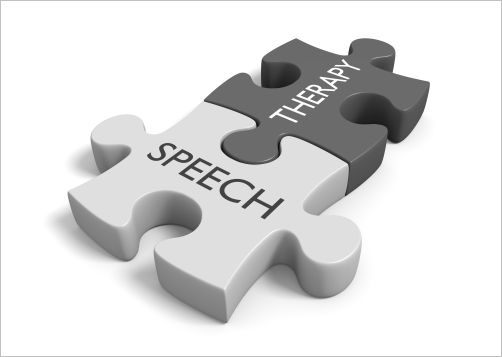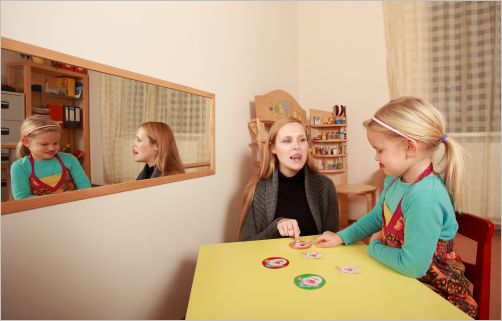Speech Therapy for Toddlers
Are you wondering if your child needs speech therapy for toddlers? Little people often have a long road ahead of them when they start learning to talk, and it’s normal for there to be hiccups along the way. If the problem is just that it’s hard to decipher some of what your little toddler says to you, there’s no ground for worry. It’s what happens whenever anyone—even adult learners—learn a new language—they butcher it.

Evaluating Your Child for Speech Therapy
How can you tell then if you child does need speech therapy? The biggest red flag is no progress over time. It’s perfectly fine for your toddler to make a mess of his language, but it’s not okay for him to keep on making a mess of it, at the same level, for an extended length of time. You should see increasing clarity, better vocabulary, and more appropriate use of grammar over time. This doesn’t have to be super-fast; even a gradual improvement is an improvement. But if your toddler seems ‘stuck’ talking gobbly gook it may be good to get him or her evaluated.
Other signs that you may want to get your two year old evaluated:
• She skips consonants consistently, for instance, saying ‘o’, for ‘dog’ and ‘a’ for ‘cat’
• She mispronounces vowels; ‘molk’ for ‘milk’ or ‘coo’ for ‘cow’
• Doesn’t learn simple phrases like ‘bye-bye’ or ‘hello’
• Won’t connect words, and speaks in single words only
• After using a word once, seems to forget it
• Uses a personal ‘general catchall’ noise or ‘word’ to name many things
How Speech Therapy for Toddlers Can Help Your Child Communicate
A speech therapist is trained to help little people make sense of sounds and language. Your first visits will likely be screenings and testings, and if the therapist decides that your child needs help, she’ll work with you to create a ‘plan of action’ including regular therapy sessions and well-stated goals.
Most likely your child is perfectly capable of clear, coherent speech, he or she just needs a little bit of help to figure out how to do it. And when it comes down to it, the magic pill is simply practice. Lots of it, carefully targeted, will bring your child up to where he or she should be. That’s pretty much what speech therapy for toddlers is all about. For instance, if the issue is pronunciation, a therapist will probably help your child with lots of mouth exercises that stretch his or her abilities and make talking easier.

Supporting Your Child’s Speech Therapy at Home
If your child is enrolled in speech therapy for toddlers you’re going to want to do lots of support work at home as well; after all, you’re probably with your little one more than anyone else, which gives you more potential to make a difference than anyone else. Make language intentional between the two of you; talk throughout the day, whatever you are doing, and make a point of eliciting responses: don’t just go on and on in a monologue
If there are certain words or sounds your child’s speech therapist is working on, think of ways to encourage your child to say them repeatedly by incorporating them games (simple generic games like hopscotch can be made into fun learning activities) . Especially if he finds it difficult, make sure you offer lots of positive reinforcement whenever he tries.
Speech therapy for toddlers is just a phase, and it probably won’t be long before your toddler is running with what he’s learned!
Click here to return from Speech Therapy for Toddlers to Home Page
New! Comments
Have your say about what you just read! Leave me a comment in the box below.